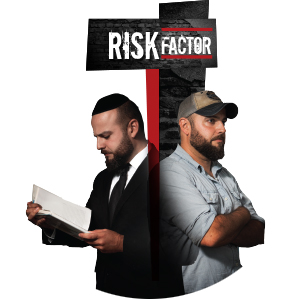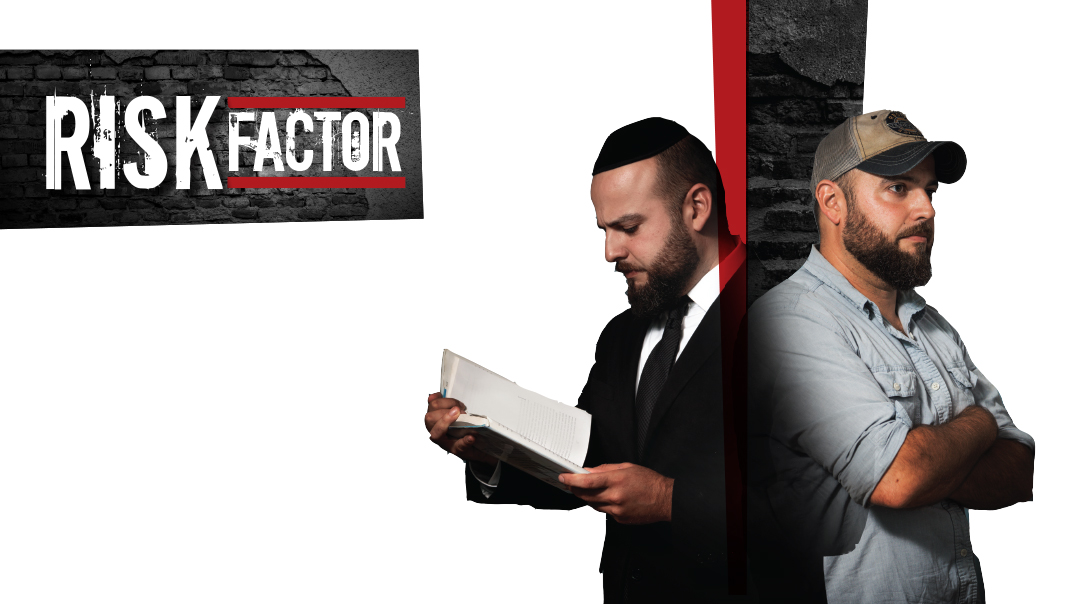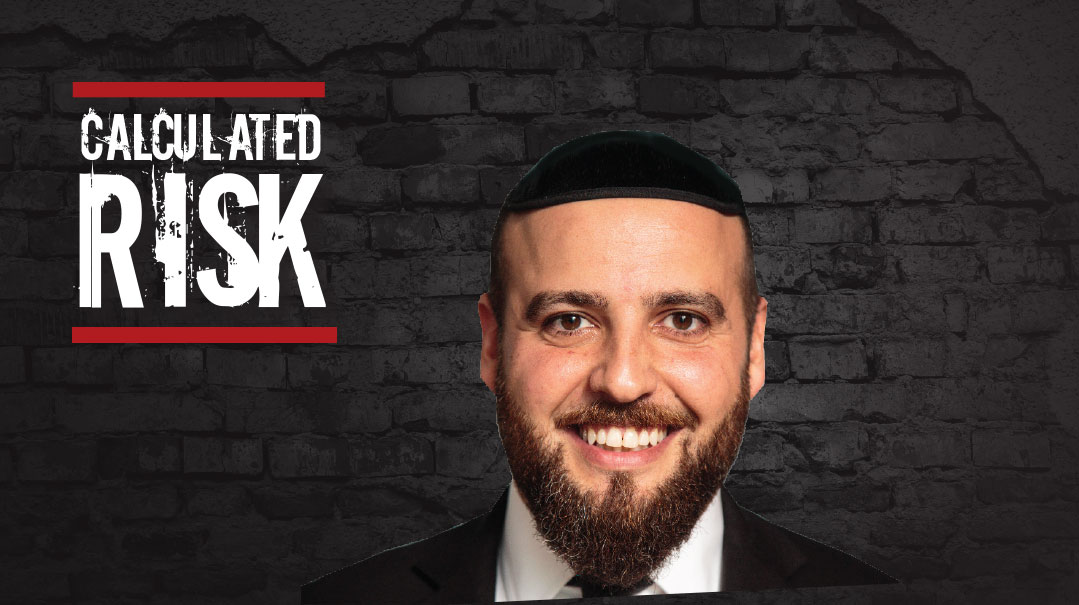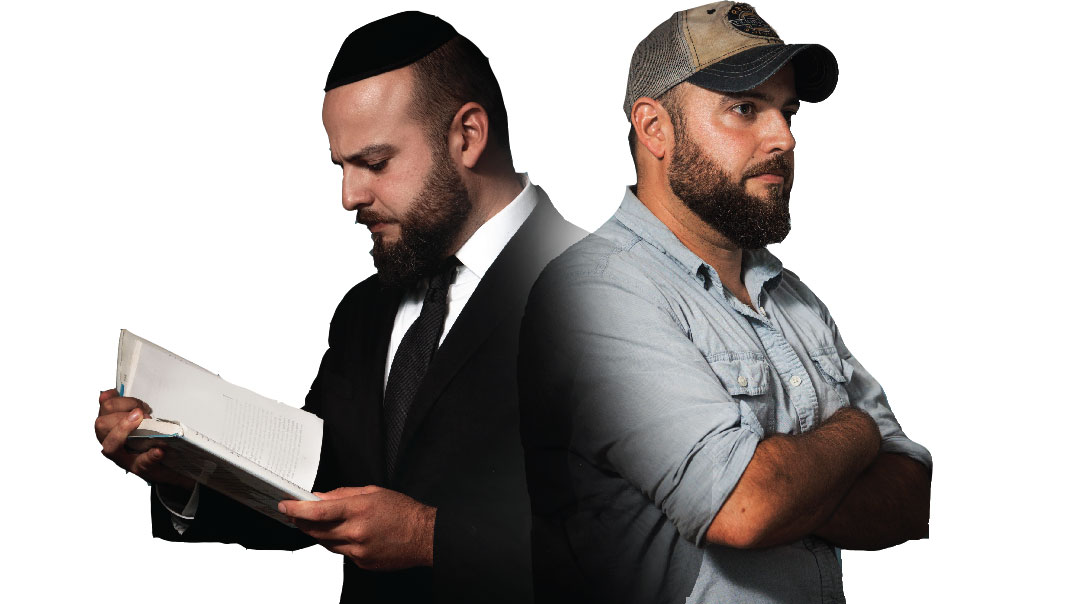Freedom

"Freedom is earned. You’re the only person who can give it to yourself”

I got to the coffee shop late.
As a general rule, I’m usually late. I would love to claim it’s an occupational hazard, but the truth is it has nothing to do with my job. As my wife, my students, and my editors will tell you, I’m just always late.
In this case I was only five minutes late, which was fine, because the guy I was supposed to be meeting wasn’t even there yet. I ordered my coffee and sat in the back corner table. I don’t mind when people are late (I guess I don’t really have the right to be) — I can always work while I wait. I pulled out my phone and started to respond to some week-old emails.
“I know your shtick!”
I looked up. The guy standing in front of me was wearing sunglasses, a pink shirt, and tight jeans. He was holding a milkshake the same lurid color as his shirt. I couldn’t help but notice that he wasn’t wearing socks.
He sat down across from me. “You’re Simcha, I take it,” I said, stretching out my hand.
“Call me Randy,” he said.
“Why would I do that?”
“I like the shtick with the cap and the getting dressed up,” he said, indicating my clothes. “I read some of your stories, they’re cute.”
I looked down at what I was wearing — same thing I had been wearing for the meeting before this. Did he just call my articles cute?
“You know, we’re the same,” he said confidingly. “I read people, too. Look, I know why my brother wants me to meet with you, but it ain’t gonna work.”
“Hi, my name’s Yossi,” I said.
“Ha! I know who you are! I know what you do. I’m just telling you, we’re wasting our time.” He leaned back and folded his arms, smirking at me like this was a game.
I’m not very good at games.
“What exactly is it you think I do?” I asked.
“You read people, then you convince them to do things.” He said this very matter-of-factly.
“If that were true, then I would agree with you that this is a waste of our time. But I don’t believe anyone really has those abilities,” I said. “And since that’s not actually what I do, then maybe you can’t know yet if this is a waste of time.”
“Then what do you do?” he asked.
“Well, I definitely don’t read people. I listen to them, try my hardest to understand them. There’s a very big difference,” I told him. “And I don’t convince anyone of anything. I just act as a sounding board for people who are figuring out what they want to do.”
“A sounding board,” he said, making quotes in the air and rolling his eyes. “I don’t need a stupid sounding board. I do what I want. Period.”
“ So tell me, Simcha, what is it you want to do?”
“I just want my freedom,” he said immediately. “Is that so bad?”
“Can you define ‘freedom’?”
“I’m turning 18, I want to do whatever I want. I’ve been so sheltered my whole life. I don’t want to go to Israel, I don’t want to go to yeshivah, I just want to move to Cali and chill,” he said.
When Simcha’s brother had called me, he’d informed me of the extracurricular activities that Simcha was involved in. They were far from innocent. My goal here was not, contrary to what Simcha thought, to get him to go to yeshivah. My goal was for Simcha to modify his lifestyle before it was too late.
“So basically, your goal is to chill with no one on your back,” I said.
He looked at me suspiciously and gave a cautious yes.
“Look, people need to make mistakes and figure out life for themselves. I can totally understand your wanting to do that,” I told him. “Why is your brother acting like such a buzzkill?”
“Thank you! Also, it’s not like he didn’t have his turn to party, by the way,” he said conspiratorially.
This I knew was true — I had been with his brother through his struggles to put his life back together.
“I don’t know,” I said. “I don’t see the problem.”
“Exactly,” Simcha said, grinning.
I grinned back. “I mean, I completely disagree with just about everything you said, but it’s not the end of the world. I don’t think you need me. No offense, but you’re just immature and that will pass with time.”
He looked confused. I stood up and started pulling on my coat.
“Wait,” he said, “that’s it?”
I turned to him. “Were you expecting something else?”
“Well,” he said, looking at me like I’d let him down, “aren’t you going to try to talk me out of it?”
“Ha! I’ve been doing this long enough to know when I don’t stand a chance,” I said.
For one instant he lost the façade. “I’m beyond help?”
The question wasn’t for me. It didn’t even seem like a question. More like a confirmation.
“No, the opposite,” I replied.
He looked up at me standing there.
“Want to talk about it?” I glanced down at the seat I had just vacated.
“If you have time, I mean…”
Simcha wasn’t going to listen to a word I had to say as long as he was being forced by his brother to talk to me. He was too protective of his independence. It had to be his idea.
I sat back down.
“You’re not beyond help. You’re just not ready for it. Despite the show you put on, you’re a scared and lost kid. Your plan makes no sense. Your definition of freedom is so far from anything resembling freedom, I’d be surprised if you could spell ‘freedom,’” I said.
He looked like he’d been hit by a train.
“Look, you’re a good kid, and I understand why you want what you want, but it’s not freedom,” I said seriously.
“You don’t think I could take care of myself?” he asked.
“Well, you forgot to wear socks today, so I’m guessing you can’t.”
He laughed.
“I’m sure you could take care of yourself, but what you’re describing now is survival, not freedom. It’s better than what you were describing before, which was anarchy. Survival mode might make you successful. You’re a talented guy and you’re very likable. But although survival is a powerful tool for success, it’s also insatiable. You will never be content. You will never be able to be happy in the moment. Your life will just be about stress and the next move to stay alive.”
He was listening intently now. Something about the description was resonating with him.
“Now, freedom is something entirely different. Freedom is earned. You’re the only person who can give it to yourself. And it starts with the decision that you value being free in every moment more than you value feeling or looking good. That’s where we start, at least.”
He sat there for a minute, thinking.
Then he looked directly at me. No smug looks. No false confidence. Just raw emotion on his face. He leaned in and said, “You really think I’m likable?”
The question hurt so much. I swallowed.
“Yes, despite your insufferable arrogance,” I said, smiling. “You’re likable and you have a lot to look forward to. But you’re scared to commit to being free.”
“I am free, I do whatever I want,” he repeated, without too much confidence.
“No, you don’t. You do whatever you feel like doing. You have no idea what you really want and that’s what scares you.”
He stared at the milkshake, looked back at me, then back at the milkshake. “Fine,” he said. “What do I really want?”
I smiled and shook my head.
“Oh, right,” he said. “Okay. I want…” A host of emotions played across his face.
“Go ahead,” I said. “I’m listening.”
Identifying details have been changed to protect the privacy of patients, their families, and all other parties.
Rabbi Yossi Bensoussan serves as mashgiach ruchani at Yeshiva High School of Cleveland. He is a Certified Alcohol and Substance Abuse Counselor (CASAC) who currently maintains a private practice, and does motivational speaking and community education on addiction all over the US and Israel.
(Originally featured in Mishpacha, Issue 854)
Oops! We could not locate your form.










